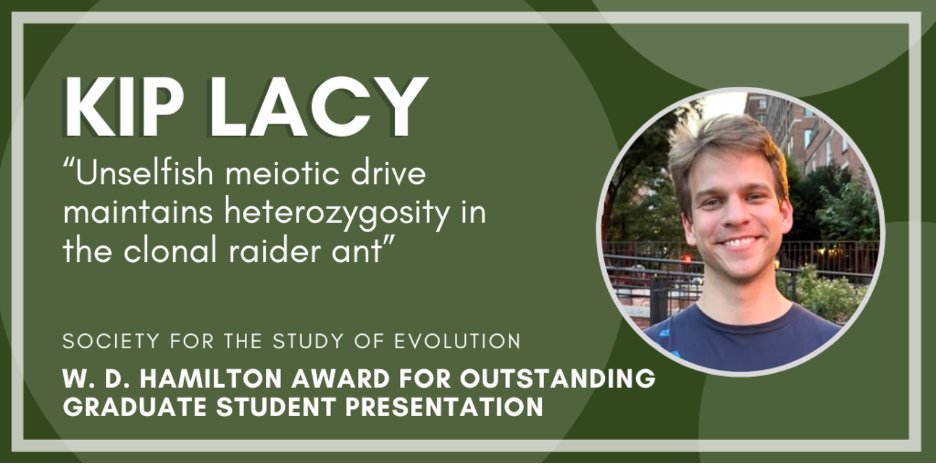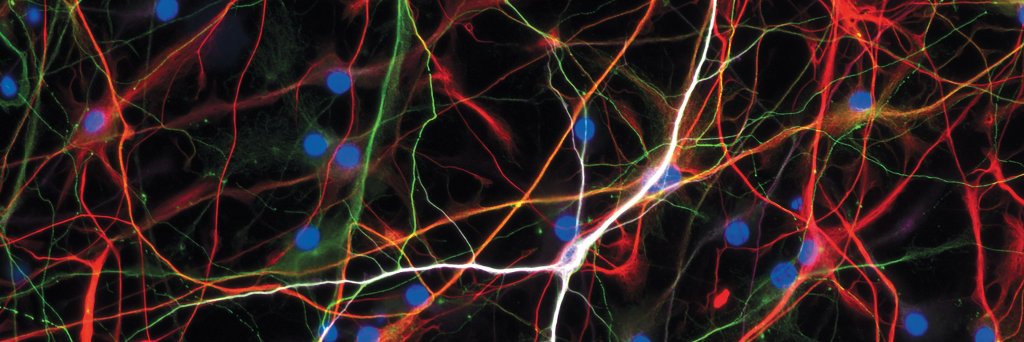
Rockefeller University
@RockefellerUniv
The Rockefeller University is a world-renowned center for research and graduate education in the biomedical sciences, chemistry, bioinformatics and physics.
A @CellPressNews study from the #CampbellLab demonstrates that a previously published structure/mechanism for RNA capping at work in coronaviruses is incorrect, with potentially sweeping implications for drug development targeting these pathogens. rockefeller.edu/news/37986-roc…

In an interview with @Elmedicoint, Rockefeller's Svetlana Mojsov reflects on how her discovery of GLP-1 has helped millions manage diabetes and obesity, and on the importance of mentorship, collaboration and translation in science: wb.md/4o4jFOv
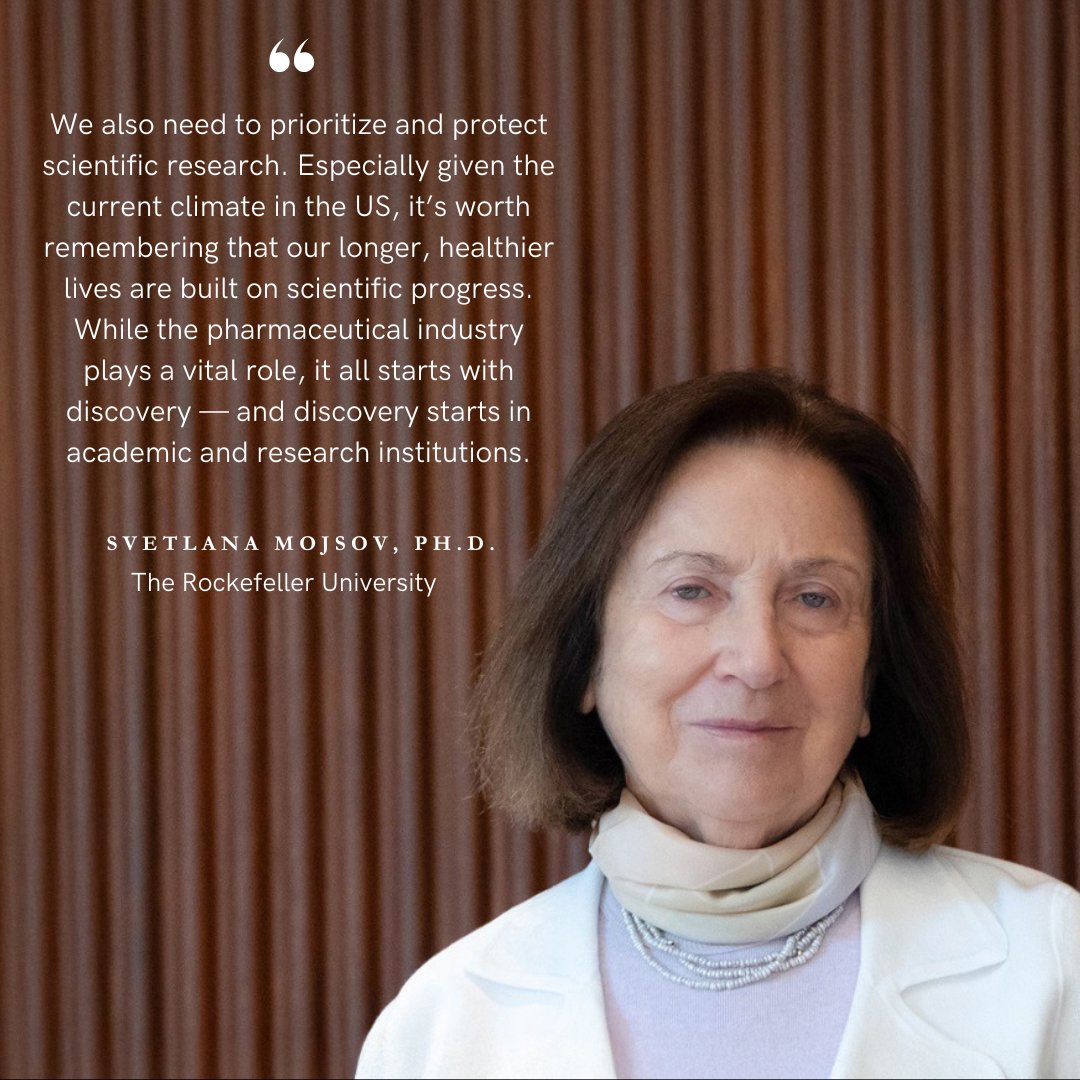
New research from @DanielKronauer's lab in @PNASNews sheds light on how a young ant’s future is determined by genetics and the environment, finding that genes not only influence size, they change what a given size means for the colony. #RockefellerScience rockefeller.edu/news/38067-how…

A study from Rockefeller's Sebastian Klinge in collaboration with colleagues at @Princeton and @ULBruxelles reveals how the nucleolus gives rise to ribosomes—and how scientists can use that knowledge to reshape the nucleolus itself. #RockefellerScience rockefeller.edu/news/38042-sci…
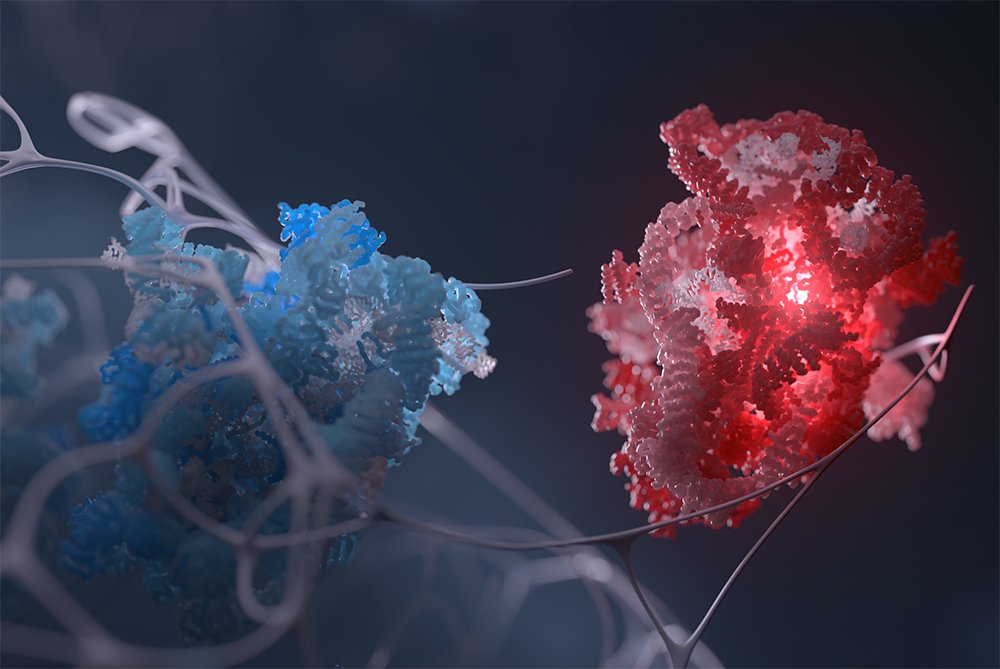
ICYMI: Research from the #HeintzLab uncovers how a hormonally tuned brain circuit in mice governs sex-specific mating behaviors. neurosciencenews.com/hormones-sexua…

Alexander Lercher of the @RiceLaboratory is a @CytokineSociety Young Investigator! He works on how past inflammatory events can result in durable antigen-independent innate immunity, enabling cross-protection against heterologous pathogens. Congrats! signals.cytokinesociety.org/2025/07/14/202…
Rockefeller's @lizzyzhao has spent nearly a decade cataloguing evolutionarily young genes. Now, complementary studies in @PNASNews and @NatureEcoEvo are the first to demonstrate how these new genes are regulated and expressed. rockefeller.edu/news/38025-how…

Scientists in the #HeintzLab discovered an identical neural circuit that operates differently in male and female mice. #RockefellerScience rockefeller.edu/news/38013-thi…
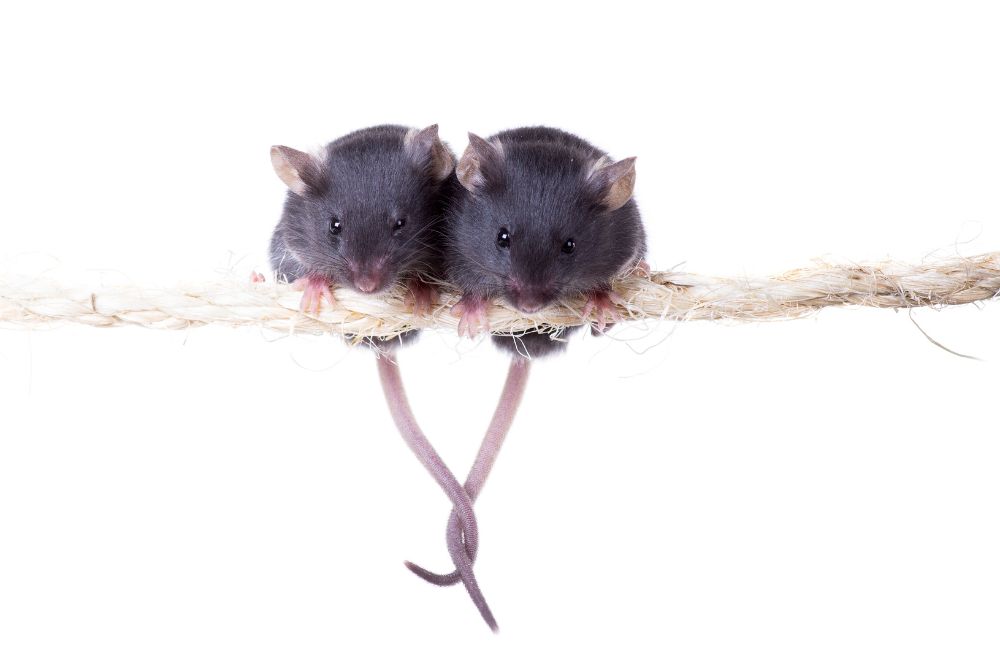
Research from @ElaineFuchsLab in @Cell_Metabolism shows that low levels of the amino acid serine trigger a process that turns hair follicle stem cells into skin repair specialists—and that diet may have a role to play. #RockefellerScience rockefeller.edu/news/37997-res…
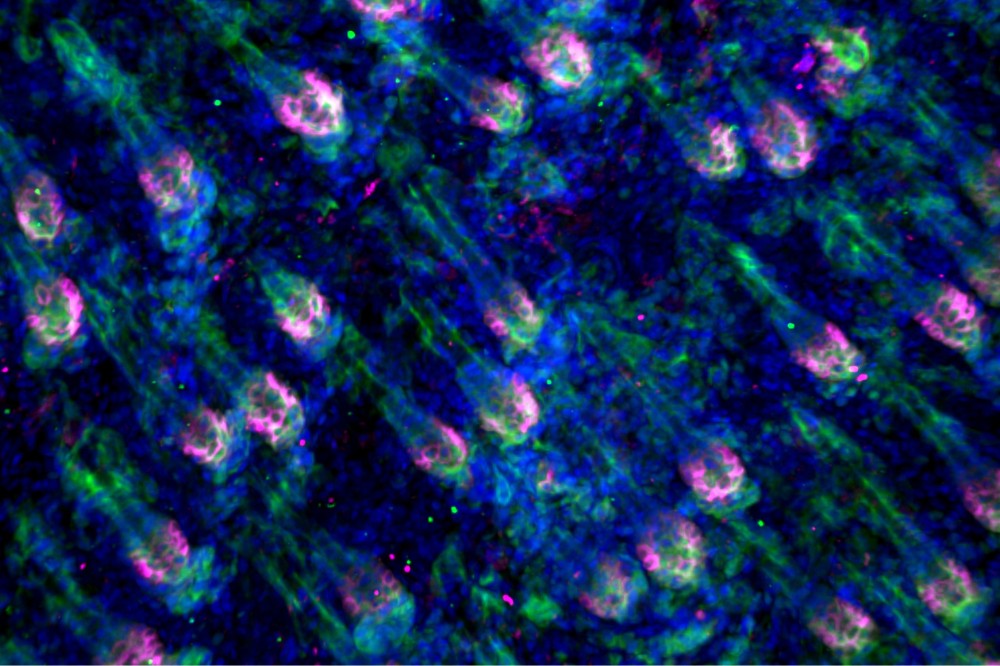
A @PNASNews study from the MacKinnon lab finds that proteins contact each other in a variety of ways to form self-clusters, highlighting the diversity of chemical interactions nature uses in the formation of protein assemblies in cell membranes. pnas.org/doi/10.1073/pn…
I am so thrilled to have been awarded the Kavli NSI Postdoctoral Fellowship to continue my research on the neural circuits of food intake control in the Friedman Lab! @KavliFoundation @RockefellerUniv
Andrew MacLean of @NussenzweigL has been named a 2025 @CancerResearch Institute Irvington Postdoctoral Fellow. Congrats! cancerresearch.org/media-room/spr…
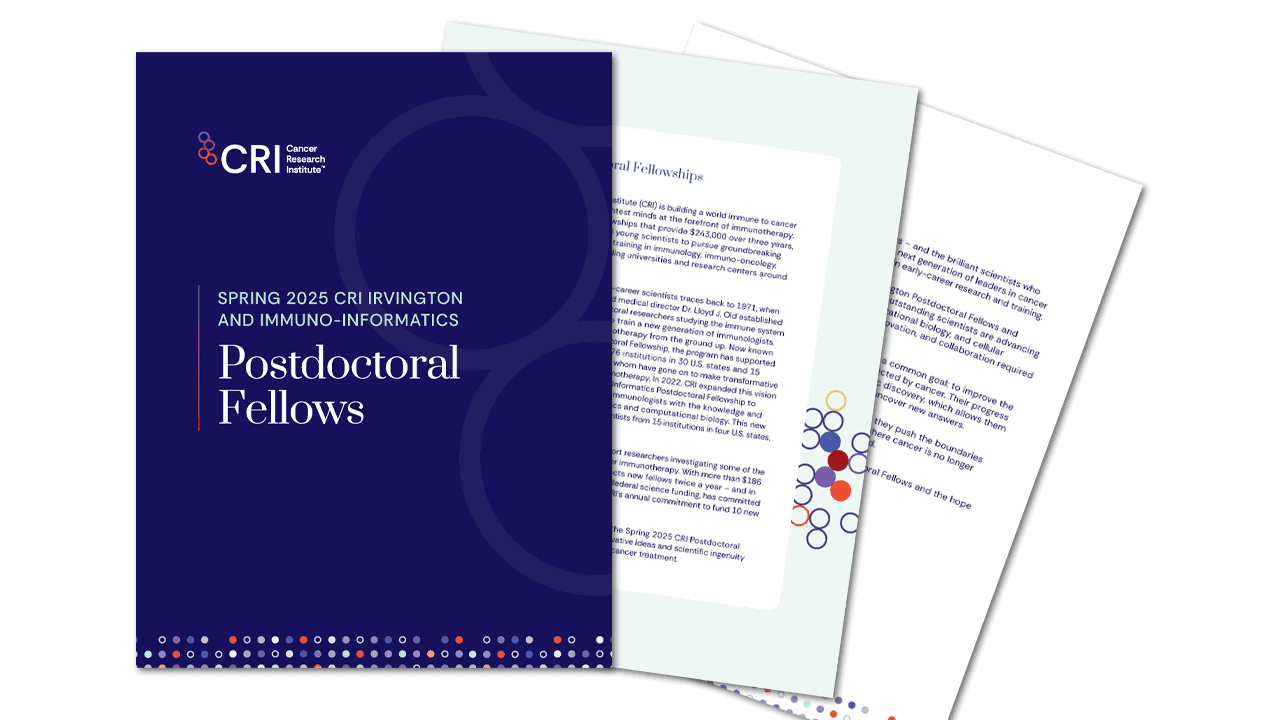
Leslie Vosshall went from dishwasher in the lab as a teen to leading an international team of scientists. 🧫👩🔬 Listen to her story on the latest episode of #WeAskaScientist. laskerfoundation.org/we-ask-a-scien… #SciencePodcast @leslievosshall @hhminews @rockefelleruniv
In this @NatureMedicine piece, Rockefeller's Jeffrey Friedman recalls the heady excitement when his group discovered leptin, a hormone that regulates appetite. nature.com/articles/s4159…

Rockefeller's Jeffrey Ravetch is a recipient of this year's Max Cooper Prize in Immunology from @EmoryUniversity! He is recognized for his research on antibodies and immune cells’ Fc receptors, work that has paved the way for new disease treatments. news.emory.edu/stories/2025/0…
Rockefeller's Luciano Marraffini has been named a member of the 2025 Class of #GreatImmigrants, Great Americans by the @CarnegieCorp! Born in Argentina, Luciano is recognized for his work on CRISPR-Cas systems. Congrats! For more details, see: carnegie.org/awards/award/g…

The Vertebrate Genomes Project (@genomeark) has set its sights on creating high-quality reference genomes for every one of the planet’s roughly 70,000 vertebrate species. Check out this Q&A with @erichjarvis and @giulio_formenti, leaders of this effort. rockefeller.edu/news/37980-why…

Kip Lacy (@MendelsLOLs) of @DanielKronauer's lab has won the W. D. Hamilton Award for Outstanding Graduate Student Presentation from @sse_evolution for his talk "Unselfish meiotic drive maintains heterozygosity in the clonal raider ant." Congrats! evolutionsociety.org/index.php?modu…
